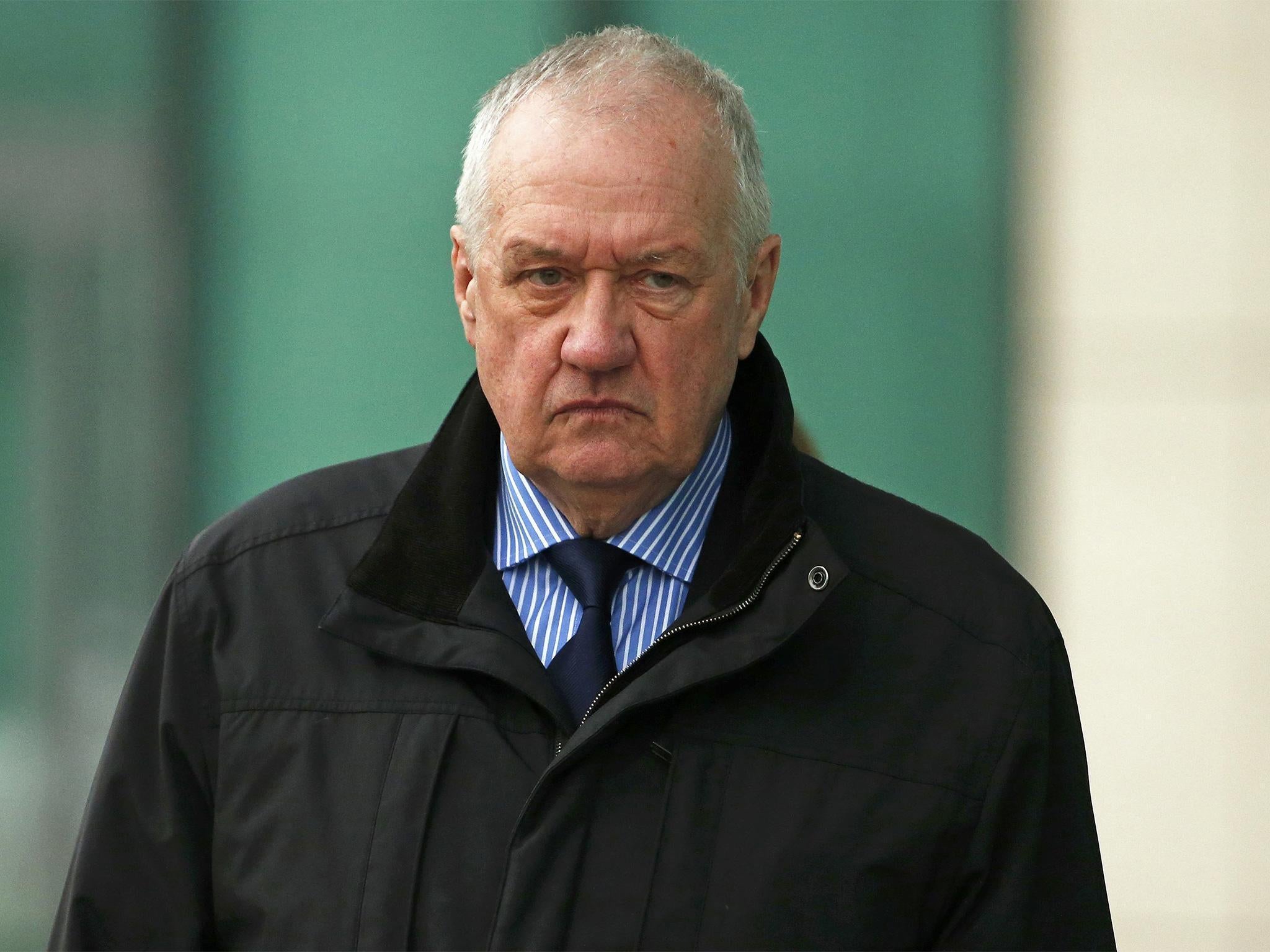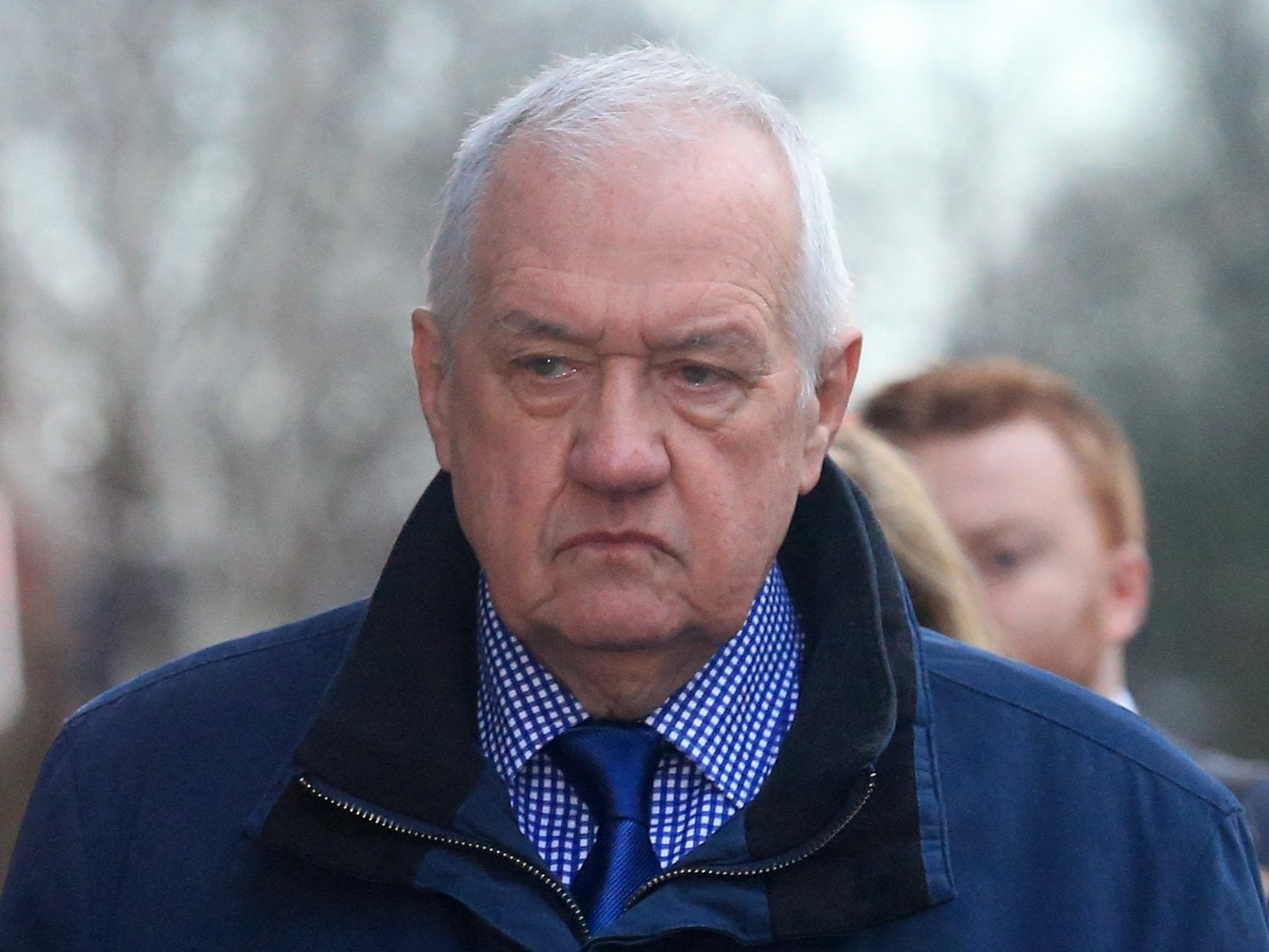Hillsborough trial: David Duckenfield 'unfairly singled out' for manslaughter prosecution, defence claims
Prosecution says match commander's 'extraordinarily bad' series of failings led to fatal crush

David Duckenfield has been “unfairly singled out” for prosecution over the Hillsborough disaster, his defence lawyer has claimed.
The match commander “was not equipped with special powers to anticipate things that everybody else didn’t,” Benjamin Myers QC told a jury at Preston Crown Court.
He added: “It can hardly be fair to judge Mr Duckenfield by different standards from everyone else.
“The prosecution are blaming him for ... events that can’t be attributed to the fault of any persons in particular.
“What happened on 15 April 1989 was brought about by a combination of factors great and small, some with their roots in events years before and some that emerged in the hours and minutes before disaster struck.”
The prosecution had previously told the court that Mr Duckenfield’s “extraordinarily bad” failings as match commander was a substantial cause of the deaths.
Richard Matthews QC said it “required no hindsight” to realise the risk of a fatal crush in fenced pens at the Leppings Lane end of Hillsborough stadium.
Mr Duckenfield did not consider the consequences of an influx of thousands of Liverpool fans down a tunnel into the already overcrowded pens when he ordered a large gate to be opened to ease a separate crush outside the stadium, the court heard.
Prosecutors said he then failed to take action as the disaster was unfolding, with survivors and witnesses recalling how they shouted at police officers for help, and to be let out, but got no repsonse.
Excerpts of statements from officers were read showing that they were operating without orders from Mr Duckenfield, or the police control box, to try to manage crowds at the Leppings Lane end.
Even as the victims were being crushed to death, police communications played to the court suggested that some officers believed the incident to be a pitch invasion and responded accordingly.
When the match was stopped at 3.05pm, police triggered operation support, which was not a safety operation but a “contingency plan to deal with spontaneous disorder”.
Mr Matthews said: “No matter who else could have done better, done more, done things differently, Mr Duckenfield’s failures continued.
“Each flowed from his own decision making and fell squarely within his personal responsibility as match commander.
“Ultimately Mr Duckenfield failed in the most appalling manner to monitor what was happening in pens three and four, and to prevent or avert the inevitable consequence of the flow of many spectators into the central tunnel, crushing the life out of so many people.”
But speaking later on Thursday, Mr Myers told the jury a combination of factors “came together in catastrophic fashion … and to single out David Duckenfield is artificial and unfair”.
The defence lawyer said that the fencing that contributed to the disaster was common at football stadiums in the 1980s and that safety risks that may seem obvious now “were a fact of life in 1989”.
Mr Myers asked the jury to “keep in mind the danger of hindsight, the historical context and the possible unfairness of applying unreasonable standards to Mr Duckenfield from what is expected for others”.
Mr Myers pointed out that the prosecution has accepted that other people are at fault “but they are not accusing them of gross negligence manslaughter”.
He added: “You may be wondering how it can be fair to single out one man for prosecution when there are so many other people at fault – so are we. Looking back now, there may be things that could be done differently or better, and the same can be said for a good many people.”

Mr Myers said his client believes he was not negligent and “did his best”, and that “bad stadium design, bad planning, some aspects of crowd behaviour, some of police behaviour, and genuine human error” contributed to the disaster.
He reminded the jury that Mr Duckenfield is not representing South Yorkshire Police or any other agency, adding: “Our sympathy for others can never be a reason to convict another for events beyond his control or repsonsiblity.”
Mr Duckenfield, now 74, denies manslaughter by gross negligence of 95 victims.
There can be no prosecution over the death of the 96th victim, Tony Bland, as he died more than a year and a day after his injuries were caused.
Graham Mackrell, Sheffield Wednesday’s former club secretary, denies health and safety offences.
The trial continues.
Read our live coverage below:
Please allow a moment for the live blog to load
Mr Matthews says police officers were "responding individually" to the build-up of fans outside the stadium, independently of Mr Duckenfield or anyone in the police control box, which overlooked the pens where the disaster would take place minutes later
By 2.40pm only half the Liverpool fans (5,180) with tickets for the West Terrace had entered the stadium.
A still from 2.43pm at the outer perimiter gates shows that officers were trying to shut them or block them with their horses. "That succeeded in partially stemming the flow of fans againt the turnstile block," Mr Matthews says
Gates 1 to 6 were closed at 2.45pm
At 2.46pm, footage being played to the jury shows a police Land Rover with a tannoy arriving at the Leppings Lane entrance.
At 2.46pm, a BBC commentator remarked that there were gaps in part of the ground. "If you look at the Liverpool end to the right of the goal, there's hardly anyone on their steps," he said, assessing that some pens were below capacity
At 2.48pm, footage showed the central pens 3 and 4 already appearing overcrowded and spectators being pushed around in waves.
Police in the South Yorkshire Police control room at Snig Hill had called for more horses and reinforcements
Mr Matthews says the "pressure of the crowd was such that one of the securing spikes for a perimiter gate bent and it sprung open under the pressure, with the crowd surging through the gates."
Mr Purdy is to tell the jury that he went to speak to Supt Marshall to update him on the turnstiles.
"He wanted to inform him that if the pressure continued, people would die at the turnstiles. It took minutes to reach Mr Marshall," Mr Matthews says.
"They discussed the matter in the briefest terms. The discussion focussed on the area outside Gate C. 'Ultimately he informed me to open the gates.' Mr Purdy recalls that he took that to be an order to open Gate C."
Gate C opened at 2.48pm for the first time, and Mr Purdy will say he thought it opened on his instructions. He and fans went into the inner concourse and he ordered the gate to be closed after being open for a short period of time, he adds.
Around 100-150 spectators are believed to have entered through Gate C at that time, Mr Matthews says.
At 2.48pm, CCTV shows gate C being open, with the change being visible on both police and Sheffield Wednesday cameras as a crowd surged through at high speed. A mounted police officer can be seen blocking the gate seconds later, as it is shut again, with the crowd pressure outside eased off.
Footage from a minute later, at 2.49pm, shows fans being justled and crushed together in pen 3, and some people climbing over a radial fence into pen 2 to escape.
The main BBC camera feed recorded fans in crowd 3 being justoled by the weight of the crowd and moving around like a wave, as more people emerged from the tunnel immediately behind
Mr Matthews says the jury will hear from Inspector John Bennet, who had experience policing previous matches at Bramall Lane in Sheffield and Hillsborough
He was in a logistics role at recalls that at 2.15pm, he noticed from the perimiter track that while the Kop was two thirds full of Nottingham supporters and appeared normal, the situation was irregular at Leppings Lane
He recalls how the central pens, 3 and 4, were already two thirds full but outside of that there were "just a few fans dotted around"
Mr Matthews says Mr Bennet was alerted by a steward at gate A about the weight of the crowd behind turnstiles at Leppings Lane and could see that police on turnstiles A-G "had their hands full" and radioed the police control box for reinforcements
Mr Bennet remembers no serious problems with radios at 2.45pm and recalls the turnstiles not working properly because they were "jammed up by the weight of people seeking entry" and fans were going to the wrong turnstiles
